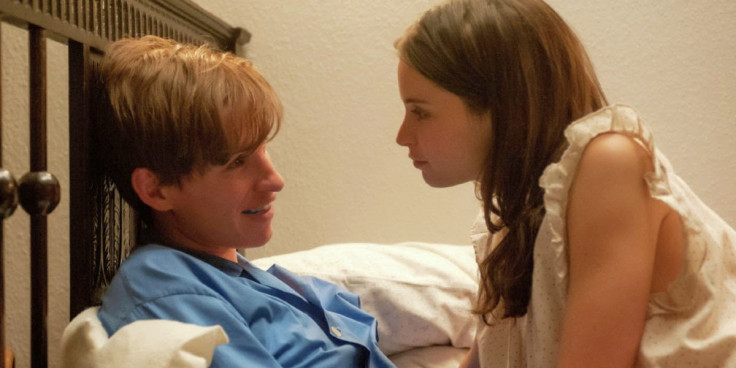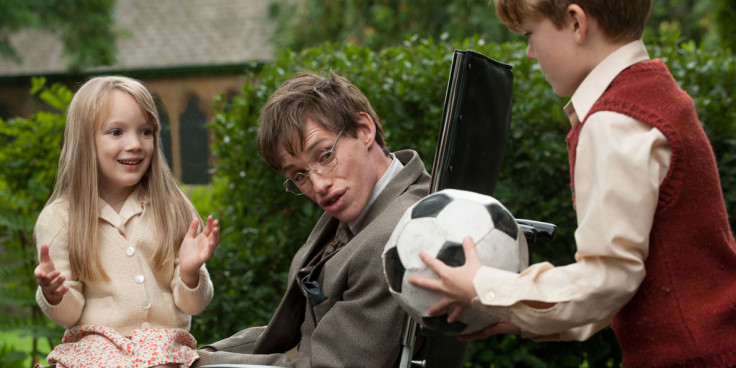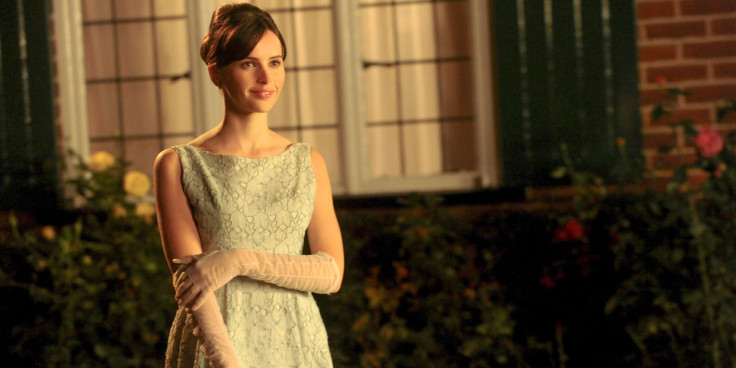The Theory of Everything review: Eddie Redmayne and Felicity Jones mesmerise in Hawking biopic

The Theory of Everything
Director: James Marsh
Stars: Eddie Redmayne, Felicity Jones, Harry Lloyd
Rated: 12A
Time has a habit of dehumanising historical figures and turning them into symbols of their accomplishments. The sense that they're real people with all the complications and imperfections that come with that is gradually lost as they become icons and faces in textbooks.
A well-crafted biopic can go some way to reminding the world that people like Professor Stephen Hawking are real people. Not quite in the patronising way that might sound, but in a way that allows us to connect in some small way with such exceptional individuals.
Director James Marsh's The Theory of Everything isn't a film about Hawking's world-changing theories; it's about the mind behind those ideas and the man whose hunched body betrays him. We start with a young Hawking at a university party, all smiles, messy hair and wonky glasses, as he meets his future wife Jane Wild for the first time.
The early scenes setting up their romance are saccharin in the extreme. Eddie Redmayne (as Hawking) and Felicity Jones (as Wild) turn in wonderful performances however that help this romance blossom on screen despite the fairy tale air.

Their romance anchors the rest of the film as their love is tested following Hawking's fall at the age of 21 and the diagnosis of his motor neuron disease. As his physical capabilities deteriorate Redmayne's performance becomes layered and increasingly extraordinary.
Physically it's unlike any performance in recent memory. Redmayne contorts his body into such shapes that audiences will feel uncomfortable, which is precisely the point. The world knows what Hawking looks like, but seeing another actor distort themselves like he does creates a feeling of discomfort and unease fitting with the struggle the character is embroiled in.
As unique as his portrayal is however, Jones manages to be his equal with a more traditional but just as powerful performance. Being based on Wild's book about her time as Hawking's wife, the film naturally becomes as much about her as the famous physicist, but no character is ever short-changed.
This is pitched as a Stephen Hawking biopic but it's just as much Wild's story, with the film shifting its focus about half way through as Hawking's struggle is eased by new technology (the motorised wheelchair and then his famous computer) and Wild starts to show the strain.

Had Wild's character been mishandled she may have seemed like a somewhat cruel person wanting to abandon her husband as the love between them fades. However her selfish actions are only ever portrayed as the kind we can relate to – the good kind of selfish, the necessary kind and the deserved kind. Wild's support of Hawking is never understated.
To have one powerhouse performance in a film is special, but The Theory of Everything has two. There are small issues to be had with the soppy start and an excessive ambiguity of some relationships in act two, but the sheer acting force can be in no doubt.
Redmayne and Jones, like Hawking and Wild, are for this brief period of time a perfect match. The differences in their portrayals complement and support one another perfectly to tell a sensitive, unique and powerful story.

© Copyright IBTimes 2025. All rights reserved.






















